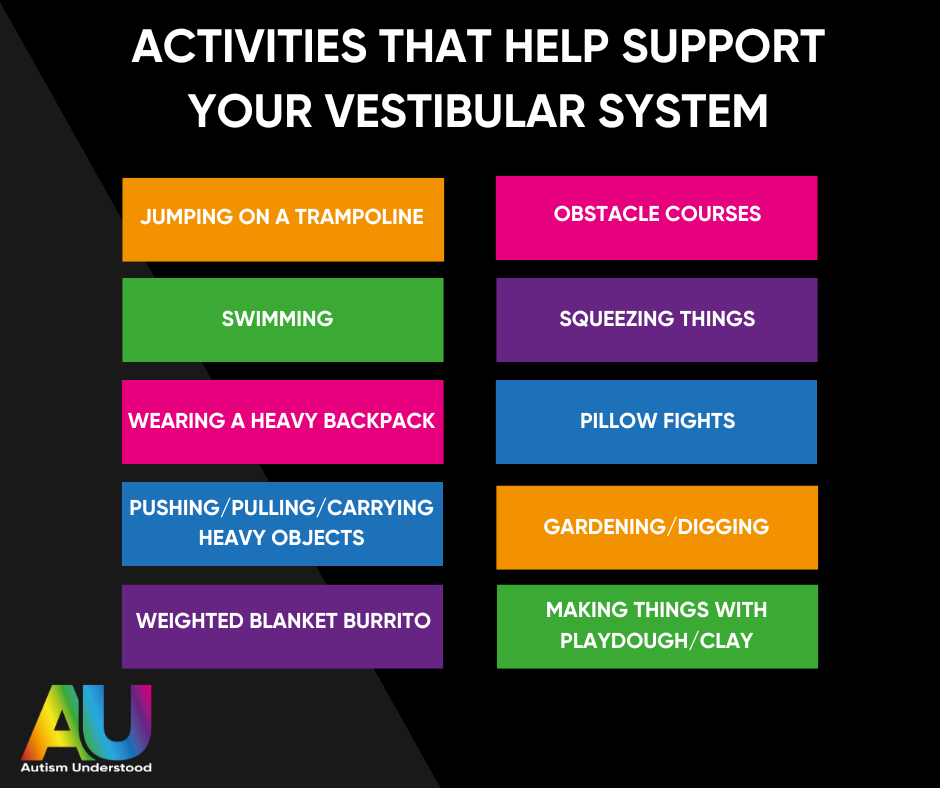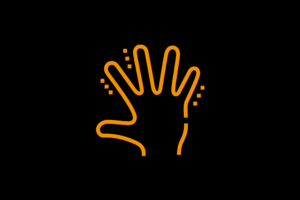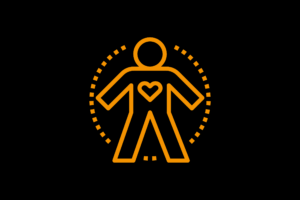Autistic people often have lower sensitivity OR higher sensitivity with their body awareness. It is common for the levels of sensitivity to change according to how relaxed, stressed or tired the person is feeling.
The scientific name for our sense of body awareness is the Proprioceptive System.
Our sense of body awareness sends information from our muscles and joints to our brains. It gives us an idea of where different parts of our body are in relation to other things and other people. For example, if you close your eyes and try to poke your nose, your body awareness helps you find it and tell you to know how close your finger is to touching it.
Lower sensitivity
People with lower sensitivity may appear to be quite clumsy, or uncoordinated at times. If someone struggles to judge how much pressure/force their muscles and joints are using, they might be prone to breaking things, or always needing to sharpen their snapped pencil after pressing on too hard when writing. Sometimes, this might mean that the person dislikes sports, or physical tasks because it can be quite frustrating not feeling fully in control of your body position.
TOP TIP – Have a look at the suggested activities list below to see which ones you would feel comfortable doing.
Other times people with lower sensitivity might be always seeking out physical activities to reassure their brain of where their body parts are. Are you someone who enjoys rough play, crashing into things, or running and jumping instead of walking? This could be because you are trying to increase the messages through your sense of body awareness, without realising that’s why you like to do those things.
Weighted blankets can help with feeling secure and being more aware of your body. Here are some suggestions of activities which can also help send stronger messages to our brains, to help ourselves feel good and in control:

Can you think of any other ideas for activities?
Higher sensitivity
People with a more sensitive body awareness usually dislike rough play or some sports activities because any sort of bumpy or jolty movements are felt more strongly. However, being super aware of where your body is and what it is doing, might mean you have excellent catching skills or enjoy craft activities which require gentle, precise movements like sewing, painting or sketching!



